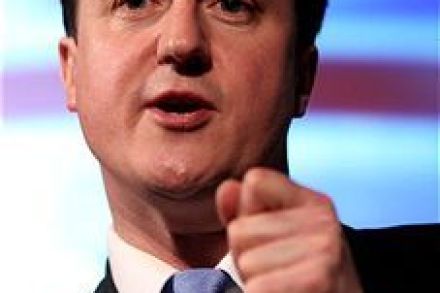Can the Tories turn things from personality to policy?
If the Lib Dem surge shows anything, then it’s the growing power of personality politics in this country. A few days ago, they’re languishing in third place with around 20 percent of the vote. One dose of TV razzmatazz later, and they’re topping the polls on over 30 percent. Yes, even though I admire much of what Nick Clegg has done with his party, there’s little doubt that all this has been catalysed by simply putting him in front of the cameras. Like someone with an okay singing voice reaching the X-Factor final, the Lib Dem leader triumphed in what was essentially a clash of personalities. Further evidence for this













